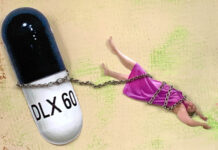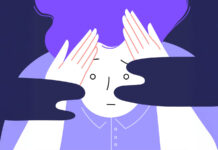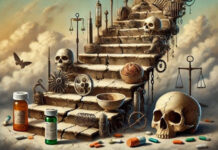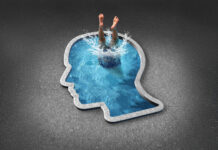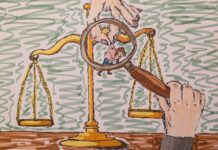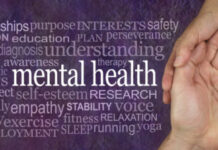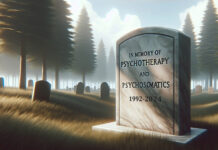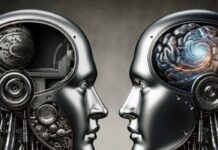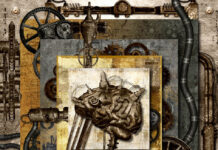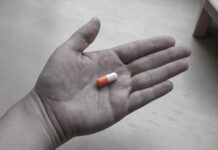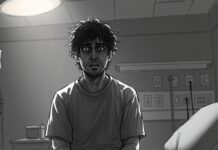Akathisia After a Five-Year Taper: Chained to an Antidepressant Forever
I have been on Cymbalta for 17 years now and am gutted that my five-year taper did not free me of the drug.
The Mental Health System in the UK Failed Us
The whole system is broken and I pray for my friends in Great Britain. They need a reform, not cuts or euthanasia.
Psychology’s Small Stories and the Call of the Other: An Interview with David Goodman
Ayurdhi Dhar interviews David Goodman about his vision for a psychology grounded in care for the other, the risks of psychotherapeutic standardization, and why humility—and even embarrassment—may be vital to human flourishing.
Lost in Psychobabble? Cut Through the Jargon for Real Mental Clarity
The key to healing is to recognize that you are not dealing with a broken brain, but unlearning survival habits that no longer serve you.
A Reflection on “Unshrunk: A Story of Psychiatric Treatment Resistance”
The act of diagnosis is so influential on a person’s sense of self that its limitations need to be repeated again and again and again.
The Curious Case of Empty Asylums and the Birth of Psychiatry
Psychiatry has cut, burned, shocked, drugged, and subdued its way through history—leaving behind compliance, not cures.
False Information in UK Package Inserts for Antidepressants About a Chemical Imbalance
To state something that is blatantly false is not a “paradigm,” it is a lie, plain and simple.
Confessions of an Advertising Writer: How I Helped Pharma Sell Antidepressants
As a former pharmaceutical ad writer, I not only witnessed the explosive growth in antidepressant drugs, I contributed to it.
De-Meaning Psychotherapy: The New Psychiatric Critic
I reject psychiatry. But I also reject the critic. In the final analysis psychiatric abolition must be a deeply personal act.
Psychiatric Drugs “A Crude Form of Chemical Restraint”
Mental health nursing has a key role to play in helping people discontinue the drugs, writes Timothy Wand.
Symptoms and Surface Psychology
Given the lack of objective signs, surface psychology can only ever be the treatment of subjectively distressing symptoms.
The “Sick Enough” Paradox in Eating Disorder Treatment
I had internalized that not only would I be socially rewarded for starving myself, but also that I could only earn care by proving that I was sick enough to meet their criteria.
A Love Letter to the Mad
My madness forged me. Madness led me to deeper truths. Madness discarded beliefs which no longer served me.
Psychotherapy and Psychosomatics: End of an Era for Independent Journals? An Interview With Giovanni...
Giovanni Fava joins us to discuss the uncertain future of the journal 'Psychotherapy and Psychosomatics' which he edited for thirty years and which has been essential to our understanding of the impact of psychiatric treatments.
Rethinking Mental Health in Ireland: Why Not a Trieste-Style Approach?
Those with mental health difficulties continue to face systemic barriers to holistic, person-centred care.
Animal Study: SSRI Neurotoxic in Pregnancy
Researchers: Fetal exposure to vilazodone hampers neurodevelopment and leads to "long-lasting neurodevelopmental impairments."
The Editorial Demise of Psychotherapy and Psychosomatics Is Bad News For Us All
Karger’s decision to replace the editorial leadership without consultation is extraordinary, abruptly ending decades of success and accumulated expertise.
When Narratives Clash: Unshrunk and The Cognitive Dissonance of the NY Times
For the mainstream media, reviewing Laura Delano's memoir "Unshrunk" is an exercise in cognitive dissonance.
Psychiatry: Medical Science of Mind or Moral Ideology?
Psychiatry is a moral ideology, making and enforcing judgments about the appropriateness of people's experiences.
Psychology, Personhood, and the Crisis of Neoliberalism: Jeff Sugarman on Theoretical and Critical Psychology
Tim Beck interviews Jeff Sugarman on the psychology of personhood, the influence of neoliberalism on mental health, and the need for a more philosophically informed psychology.
What I Have Learned in Working With 300+ People in Their Journey of Tapering
Tapering is stepping into each individual’s complex world of biology, history, psyche, circumstance, and tolerance for discomfort.
Antidepressants in Dementia Patients Increase Risk of Death and Fractures
A large-scale study reveals that antidepressant use is linked to faster cognitive decline in dementia patients, raising concerns about their widespread prescription.
Do Critics of Biological Psychiatry Have an Alternative to a Life of “Whack-A-Mole”?
Psychiatry has simultaneously offered multiple biological theories of depression and its other disorders, but the theories that stick are those that are effective marketing devices for money-making drugs.
Tortured by the Mental Health System Due to Misdiagnosis of Schizophrenia
The police think my non-existent "schizophrenia" makes me a danger to the community. If I don't show up for my injections I'm subject to police arrest and kidnapping from my home.
Mad Camp Europe: My Journey from Ward Violence to Healing and Community
If we want to advocate for a better mental health system, we have to integrate our own shame. And that is what happened to me at Mad Camp.

